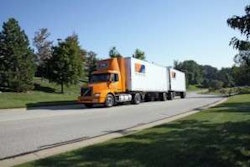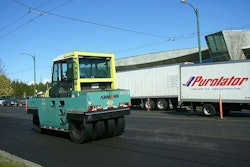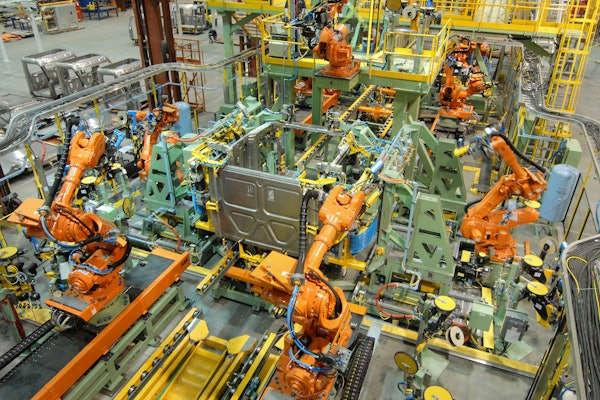Five trucking companies on Wednesday, Sept. 29, announced their support for legislation introduced by U.S. Sens. Mark Pryor (D-Ark.) and Lamar Alexander (R-Tenn.) that would require trucking companies engaged in interstate commerce to install electronic onboard recorders in all trucks in order to verify the duty status of their truck drivers.
The five companies – J.B. Hunt Transport Services, Knight Transportation, Maverick USA, Schneider National and U.S. Xpress Enterprises – are forming an industry coalition, The Alliance for Driver Safety & Security, to urge Congress to pass the legislation and also to advance other measures that can improve highway safety within the trucking industry and benefit the motoring public. Executives for the companies have asked all transportation firms that embrace the legislation to join the coalition and support the effort.
The Commercial Driver Compliance Improvement Act would require commercial motor vehicles used in interstate commerce to install the electronic devices within three years after passage. The legislation will require companies to install an electronic device that is engaged to the truck engine that will identify the driver operating the truck, record a driver’s duty status and monitor the location and movement of the vehicle. The legislation calls for utilizing existing technology and devices that are currently in the marketplace.
Passing the bill “will improve safety on our nation’s highways by applying technology to document driver compliance,” says Craig Harper, chief operating officer of Lowell, Ark.-based J.B. Hunt. Kevin Knight, chairman and chief executive officer of Phoenix-based Knight, says the legislation “is a sensible initiative to improve working conditions for commercial drivers and to promote highway safety. … Under a uniform standard, the public will be able to rely on the hours in service of all drivers rather than just some drivers.”
Mandating EOBR use “commits the entire supply chain to meeting the challenges that faces this generation in surface transportation,” says Steve Williams, chairman and CEO of Little Rock, Ark.-based Maverick. Williams, former chairman of the American Trucking Associations, says that installing these devices will help assure the public that people who drive commercial vehicles are “well trained, drug and alcohol free, and sufficiently rested.”
Donald Osterberg, senior vice president of safety for Green Bay, Wis.-based Schneider National, says that while the current federal hours-of-service rules are “science-based, reasonable and effective,” the problem under the status quo is that there is a “lack of compliance with the rules. … Fatigue is underreported and thus underestimated as a causal factor in truck-involved crashes. Electronic logs take the noncompliance issues off the table.”
Patrick Quinn, co-chairman and president of Chattanooga, Tenn.-based U.S. Xpress, as well as a former ATA chairman – says the use of EOBRs “as outlined in the Commercial Driver Compliance Improvement Act will enhance accountability, compliance and safety.”
Bill Vickery, a spokesman for the coalition, says that the group will urge other U.S. senators to co-sponsor the Pryor/Alexander legislation and hope that Congress will pass the legislation in 2011.












